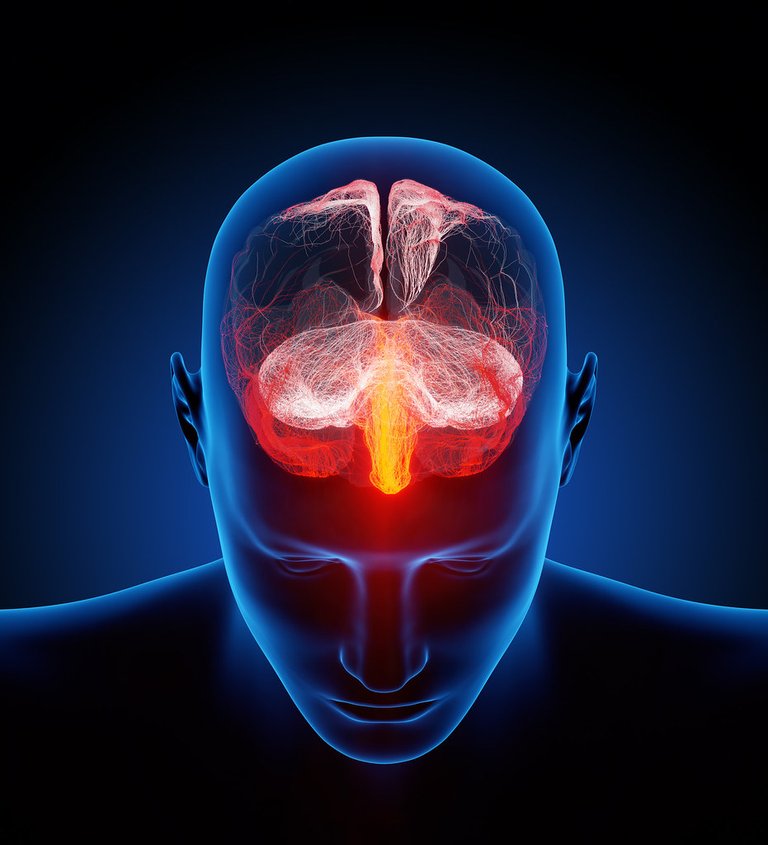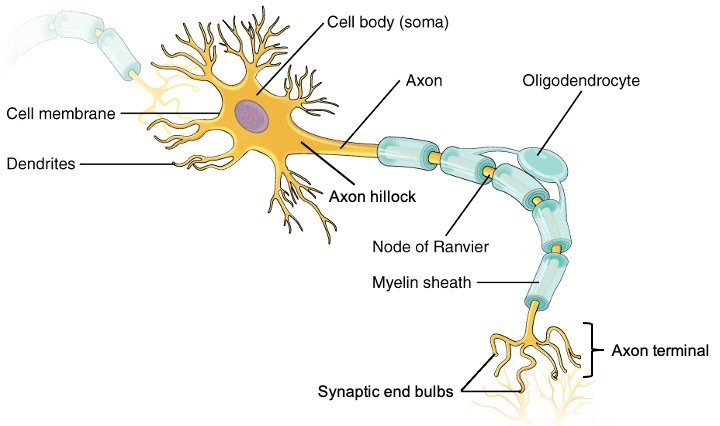An Introduction to Brain Plasticity

We all know that the brain is a very complicated and interesting system that is always changing and responding all the time. This is known as brain plasticity which is one of the most interesting things about our brains. In this article, my goal is to give a thorough look at brain plasticity, including what it is, how it works, and what it means in real life. Once we understand this better, we can use it to make our lives and well-being better.
Understanding the Brain Plasticity
In definition,Brain plasticity means that the brain can change and rearrange itself over time. The brain can show changes in both its structure and how it works. Hence, structure-based changes in the brain, like adding new links between neurons or getting rid of weaker ones, are examples of structural plasticity. On the other hand, functional plasticity is the brain's ability to change how it works, moving resources around and responding to new tasks and demands.
How Brain Plasticity Function

To understand how brain plasticity works, you need to look into the processes that allow it to do so. One important process is synapse pruning, which gets rid of weaker links between neurons to make room for stronger, more useful ones. Neurogenesis, the making of new neurons, is another method. Despite what people used to think, this process happens all the time. Neurotransmitters are also very important because they help neurons talk to each other, which affects the plastic changes happening in the brain.
Plasticity in development
As a child grows up, the brain changes in many ways. During this very important time, outside factors can greatly affect brain growth. The brain's structure is shaped largely by things like early childhood schooling, social relationships, and exposure to different stimuli. This is why things that happen in childhood have an effect on how we think and act as adults.
Brain Changes in Adults
Many people think that brain flexibility decreases as we get older, but study has shown that our brains can still change and adapt throughout our lives. Brain plasticity in adults shows up in many ways, such as when they learn new things (like how to play an instrument or a language), adjust to new situations, and heal from brain damage or strokes. Taking advantage of this flexibility can help you grow as a person, get smarter, and feel better all around.
The Good Things About Brain Plasticity?
Knowing about and using brain plasticity can make our lives better in many ways. We can make the most of our brain's ability to change by actively seeking out new situations, learning new things, and mentally challenging ourselves.
The advantages of brain flexibility are numerous and cover many areas of our lives and here are a few important pros
Learning and Mental Growth: Because the brain is flexible, we can learn new things and improve our skills throughout our lives. It helps us learn new languages, become experts in many areas, and adjust to technologies that are always changing. By constantly learning, we can increase the plasticity of our brains, which can improve our cognitive skills and make our minds stronger.
Recovery and Rehabilitation: Brain plasticity is a key part of getting better after a brain injury, stroke, or neurological disease. With the right treatments and workouts, the brain can reboot itself, fixing damaged areas and bringing back functions that were lost. Rehabilitation programs use the brain's ability to change shape to help people get better and improve their performance.
Adapting to New Environments: Being able to adapt is very important in today's world, where things change quickly. The ability to change our brains helps us adapt to new situations, difficulties, and needs. Our brains are plastic, which means they can change and adapt to new situations. This is true whether we're getting used to a new job, a new social setting, or new technology.
Managing your emotions and being able to bounce back from setbacks are both affected by brain development. We can alter the plastic changes in our brains to improve our mental health by actively seeking out good experiences, dealing with stress, and learning healthy ways to deal with problems.
What are those things that can affect the brain plasticity?
Brain plasticity is affected by many things, some of which are good and some of which are bad. Knowing about these things can help us make the most of the brain's ability to change
Environmental Stimulation: For brain change to happen, you need to create a rich and exciting atmosphere. Our brains are more flexible when we have a wide range of events, academic challenges, and social interactions. On the other hand, habits or not having enough excitement can stop the brain from changing.
Nutrients: A balanced food and the right nutrients are important for brain health and plasticity. Omega-3 fatty acids, enzymes, and vitamins are some of the things that help the brain work well and make plastic changes possible. Healthy food helps the brain change and improves thinking skills.
Sleep: Getting enough sleep is very important for brain development. The brain clears out cellular waste, reorganises itself, and makes new memories while we sleep. Getting enough sleep is good for brain health, learning, and memory.
Cognitive Engagement: Doing things that test and interest you mentally is a key part of helping your brain change. Our brains stay busy and change shape by doing things like reading, doing games, learning new skills, and being creative.
Regular exercise: It has been shown that regular exercise helps the brain change. Working out brings more blood to the brain, helps new neurons grow, and improves brain function. Brain plasticity can be improved by doing aerobic exercise, strength training, and tasks that require balance.
Well-being emotionally: Well-being emotionally is a big part of brain development. Stress, worry, and sadness that last for a long time can make it harder for the brain to change and adapt. Putting mental health first, learning how to relax, and getting help when you need it all create conditions that are good for brain development.
In conclusion, the amazing thing about brain plasticity is that it lets our brains adapt, change, and grow as we age. By figuring out how it works and using its power, we can open a huge amount of potential for personal growth, brain improvement, and recovery. We can improve the plasticity of our brains and live full, growing, and resilient lives by making our environments more interesting, keeping our minds active, and making good living choices. Brain plasticity is a wonderful thing that can help us get to a better future where we can keep growing and changing.
References
- https://www.physio-pedia.com/Neuroplasticity
- https://www.frontiersin.org/articles/10.3389/fncel.2019.00066/full
- https://en.m.wikipedia.org/wiki/Neuroplasticity
- https://www.verywellmind.com/what-is-brain-plasticity-2794886
- Source
- https://news.mit.edu/2018/mit-scientists-discover-fundamental-rule-of-brain-plasticity-0622
- https://www.physio-pedia.com/Neuroplasticity


Su publicación ha sido votada por @Edu-venezuela, se trasladará a otros proyectos de curación para obtener más apoyo. ¡Sigan con el buen trabajo!
Thanks for your contribution to the STEMsocial community. Feel free to join us on discord to get to know the rest of us!
Please consider delegating to the @stemsocial account (85% of the curation rewards are returned).
You may also include @stemsocial as a beneficiary of the rewards of this post to get a stronger support.